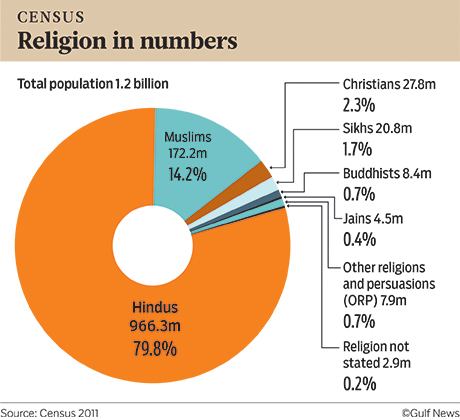Description

Copyright infringement not intended
Context: Iqbal Singh Lalpura has taken the charge of the Chairperson of the National Commission for Minorities.
National Commission for Minorities
- Under the National Commission for Minorities Act of 1992, the Union Government has established the National Commission for Minorities (NCM) to protect and promote the welfare of the 6 religious minorities’ communities.
- Muslims, Christians, Sikhs, Buddhists, Zoroastrians (Parsis) and Jains have been notified as minority communities by the Union Government all the national level.
- The original notification of 1993 was for 5 religious communities; Sikhs, Buddhists, Parsis, Christians and Muslims.
- In 2014, the Jains community was also added.
- As per Census 2001, these six communities consist of 18.8% of the country's population.
- The National Commission for Minorities (NCM) is in the line with the United Nations Declaration of 1992 which states that "States shall protect the existence of the National or Ethnic, Cultural, Religious and Linguistic identity of minorities within their respective territories and encourage conditions for the promotion of that identity.”
- Composition
- A Chairperson
- Five members are to be nominated by the Central Government from amongst persons of eminence, ability and integrity. ;
- All the members shall be from the minority communities.
Functions and Power of the Commission
- To evaluate the progress of the development of Minorities under the Union and States.
- To monitor the working of the safeguards provided in the Constitution and in laws enacted by Parliament and the State Legislatures.
- To make recommendations for the effective implementation of safeguards for the protection of the interests of Minorities by the Central Government or the State Governments.
- To look into specific complaints regarding deprivation of rights and safeguards of the Minorities and take up such matters with the appropriate authorities.
- To conduct studies, research and analysis on the issues relating to the socio-economic and educational development of Minorities.
- Make periodical or special reports to the Central Government on any matter pertaining to Minorities and in particular the difficulties confronted by them.
- Any other matter which may be referred to it by the Central Government.
Minority Communities in India
- The Constitution of India does not define the term minority.
- The distinctiveness of a numerically inferior group is certainly recognised as a legal criterion to determine the minority status of any community.
- As per the Census 2011, the percentage of minorities in the country is about 19.3% of the total population of the country.
- The population of Muslims are 14.2%; Christians 2.3%; Sikhs 1.7%, Buddhists 0.7%, Jain 0.4% and Parsis 0.006%.
- The Union Government notified minority communities at the national level in consultation with various stakeholders under Section 2 (c) of the National Commission for Minorities (NCM), Act, 1992.
- The 6 communities notified as minority communities under Section 2(c) of the NCM Act, 1992 are Christians, Sikhs, Muslims, Buddhists, Parsis and Jains.
- Notification of any community-specific to a State as a minority community within a State comes under the purview of the State concerned.
- Articles 29 and 30 of the Indian Constitution provide for the protection of the interests of minorities which includes linguistic minorities also.
- The working definition followed by the Commissioner for linguistic minorities is as follows:-
- Linguistic Minorities are groups or collectivises of individuals residing in the territory of India or any part and having a distinct language or script of their own.
- The language of the minority group need not be one of the twenty-two languages mentioned in the Eighth Schedule of the Constitution.
- In other words, linguistic minorities at the State level mean any group or groups of people whose mother tongues are different from the principal language of the State, and at the district and taluka/tehsil levels, different from the principal language of the district or taluka/tehsil concerned.
- The interests of linguistic minorities are accorded due consideration and the office of the Commissioner of Linguistic Minorities has been mandated to investigate all matters relating to the safeguards provided for linguistic minorities in the country.
- The Government has Constituted National Commission for Minorities under the National Commission for Minorities (NCM) Act, 1992.
- The NCM receives petitions/grievances from the aggrieved persons and the said petitions/grievances being received by Commission are dealt with by calling for reports from the concerned authorities under the Union and State Governments.
- Upon receipt of the reports, the Commission makes appropriate recommendations to the respective authorities for the Redressal of the grievances.
Way Forward
- The right conferred on minorities under Article 30 is only to ensure equality with the majority and is not intended to place the minorities in a more advantageous position vis-a-vis the majority.
- There is no reverse discrimination in favour of minorities. The general laws of the land relating to the national interest, national security, social welfare, public order, morality, health, sanitation, taxation etc., applicable to all, will equally apply to minority institutions also.
- The right to establish and administer educational institutions is not absolute.
- There can be regulatory measures for ensuring educational character and standards and maintaining academic excellence.
https://www.pib.gov.in/PressReleasePage.aspx?PRID=1816399
















